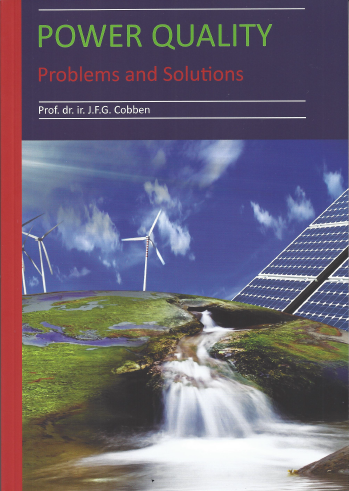Based on the PQ Book; Power Quality – Problems and Solutions
‘Study Power Quality’ is an online Power Quality training based on the book ‘Power Quality; about the problems and solutions’ by Prof.dr.ir. J.F.G. Cobben, complemented with our knowledge and experience as a practical specialist in Power Quality.
The online Power Quality training ‘Study Power Quality’ increases insight into problems related to poor Power Quality that companies and institutions have to face in today’s society. The theoretical background of the most important Power Quality aspects is discussed in various modules. In addition, various practical cases are discussed. In these practical cases, problems are measured, analyses are made, cost overviews are offered and possible solutions are discussed.

Created in collaboration with Prof. dr. ir. J.F.G. Cobben
Sjef Cobben was born in The Netherlands, in 1956. In 2002 he received the Masters degree in Electrical Engineering from Eindhoven, University of Technology (TU/e). From 2003 to 2007 he worked part-time on a Ph.D. project about “intelligent grids” with a special topic Power Quality. Sjef Cobben wrote several books about low voltage installations and Power Quality and is a part-time professor at Eindhoven, University of Technology with as research area Intelligent grids, Power Quality.
Sjef Cobben is a research scientist at Alliander (the Dutch grid operator) and specialized in the safety of the LV- and MV-networks, Power Quality, and safety of installations connected to the networks. He is a member of several national and international standardization committees about requirements for low and high voltage installations and characteristics of the supply voltage.

About us
HyTEPS consists of a team of highly qualified and enthusiastic employees. We help organizations to optimize the energy efficiency, reliability and safety of their electrical installation through our knowledge, services, and technologically innovative products. As a result, many problems, risks of malfunctioning have been resolved or prevented, which additionally results in cost savings and improved efficiency, reliability and safety. Improved energy efficiency is an important factor which contributes to corporate social responsibility.



